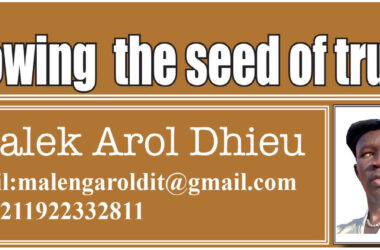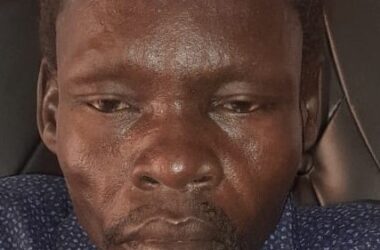
Enumerators are people who go to the field to collect information. They ask questions, write down answers, and later give the reports to organizations, government, or partners who use this information to make plans. In South Sudan, enumerators are very important because without information, we cannot know the real needs of the people. But when I look at the behavior of some enumerators, I feel very sad. Instead of working with honesty and discipline, many of them misbehave and forget their responsibility.
An enumerator is supposed to protect the information given by participants. People in the community open their hearts, share their challenges, and sometimes speak about very private issues. This information is not meant to be shouted outside or discussed carelessly in the market. It is supposed to be written, kept secret, and delivered only to the right office. But what I see today is different. Instead of keeping secrets, some enumerators expose everything in public. They talk about what this person said, they laugh at the answers, or they even tell stories to other people who have no right to hear. This behavior is very dangerous because it breaks the trust between enumerators and the community.
When people know that enumerators cannot keep secrets, they will fear to speak the truth. They will give wrong answers, or they may even refuse to take part in the survey. In the end, the information collected becomes false, and the whole purpose of the work is destroyed. This is not just a small mistake. It is something that can affect the future of the country because wrong data means wrong plans.
I came to realize that many enumerators in South Sudan are not serious about the responsibility. Most of them join the work only for their own interest. They see it as a quick job to earn some allowance or transport refund. They are not thinking about the real impact of their work. They are not thinking about the nation. Instead of focusing on the country’s needs, they are focusing on their personal benefit. Some only care about the short-term money, not about the long-term development that good information can bring.
This attitude shows a big problem. As a nation, if we continue to allow people to misuse such important work, then our progress will be slow. Development does not come by chance. It comes when we have correct data and good planning. But if enumerators only care about themselves and not about the people, then we are wasting time. We are focusing on the needs of individuals but not the needs of the country.
Another problem I have seen is that enumerators sometimes disrespect the community. They arrive late, they rush interviews, or they act as if the people owe them something. But the truth is, enumerators are the ones who should show respect and humility. Without the people, there is no information to collect. An enumerator must understand that he or she is serving the community, not ruling them.
To solve these problems, strong training and supervision are needed. Before every fieldwork, enumerators must be trained not only on how to ask questions but also on how to behave. They must be reminded that information is confidential, that respect is important, and that their duty is national service, not just personal gain. Supervisors should also follow up in the field, and there should be a clear system for communities to report when enumerators misbehave.
We must also begin to build a culture of responsibility. Enumerators should see themselves as part of the nation-building process. Every answer they record is like a stone used to build the foundation of South Sudan. If the stones are weak or fake, the building will fall. But if the stones are strong and real, then the building will stand for generations.
The truth is that South Sudan needs honest enumerators now more than ever. Our country is young and full of challenges—health, education, agriculture, and many others. To address these challenges, we need the right information. Enumerators are the bridge between the community and the government or organizations. When they misbehave, the bridge breaks. When they act with respect and discipline, the bridge becomes strong.
In conclusion, enumerators must understand that their job is not just for today’s allowance. It is a service to the nation. They must keep information secret, respect the people, and put the needs of the country above their own interest. If we want South Sudan to grow, we cannot allow misbehavior to continue. We need responsible enumerators who will serve with honesty, humility, and love for their country. Only then will our data be correct, our plans be strong, and our nation move forward.
Thank for reading, “committed to truth, driven by love for my nation “



